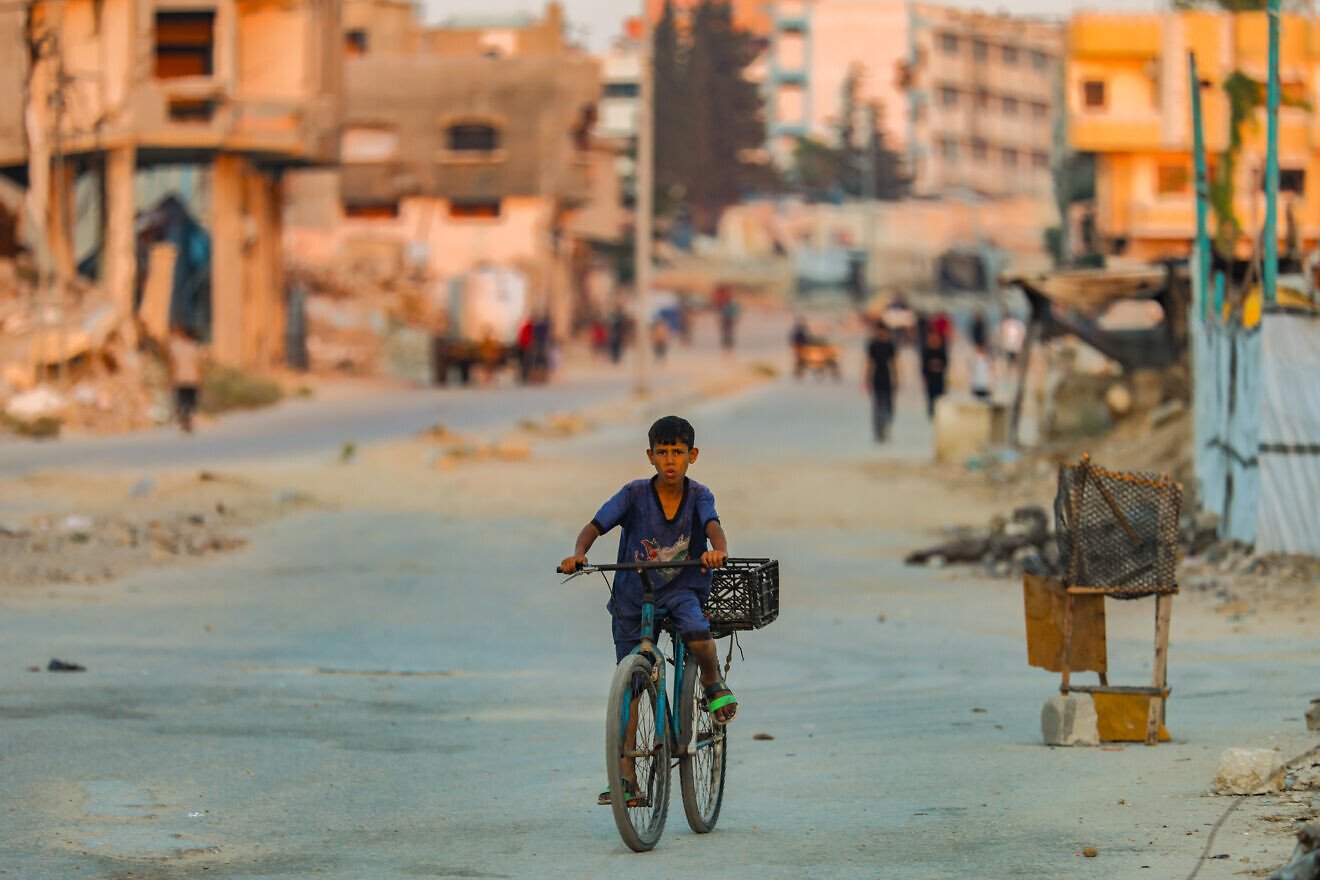(JNS) The accusation of genocide is among the most serious charges in international law—a designation that carries not only immense legal and moral weight but also deep historical resonance. As such, it demands precise evidence, rigorous scrutiny and a clear-headed application of legal standards.
That is why recent claims—most notably, by Professor Omer Bartov of Brown University in his widely circulated article in The New York Times—that Israel is committing genocide against Palestinian Arabs in the Gaza Strip must be carefully examined, not just accepted at face value.
Let me be clear: The humanitarian toll of the conflict is horrific. Civilian suffering should move the conscience of the world. But to conflate war, even a brutal, asymmetrical one, with genocide is to misrepresent both the letter and spirit of international law.
Under the 1948 Genocide Convention, genocide is defined as acts committed with the intent to destroy, in whole or in part, a national, ethnic, racial or religious group as such. This is not a flexible moral label; it is a precise legal category. The keyword is intent. Not collateral damage. Not excessive force. Not even widespread death. The crime of genocide hinges on a demonstrated intent to eliminate a group because of its identity, not because of its military threat.
Bartov argues that intent can be inferred from destruction, but this reverses the evidentiary logic: Destruction alone does not prove genocidal motive.
In Gaza, Israel’s stated objective has been the dismantling of Hamas, a designated terrorist organization responsible for the mass murder of civilians on Oct. 7, 2023. Even if Hamas operatives do not wear uniforms, that doesn’t make them a protected ethnic or religious group. They are not being targeted for being Palestinians, but for being combatants or for shielding combatants.
Bartov omits a critical factor: Hamas’s documented use of civilian infrastructure—hospitals, schools, mosques—for military operations. According to the Geneva Conventions, such use voids the civilian protection of those sites. When a hospital is converted into a command center or when rocket launchers are placed near refugee camps, the blame for the inevitable destruction cannot rest solely with the attacker. Hamas has, by many accounts, not only endangered civilians but has actively prevented them from evacuating, using them as human shields in direct violation of international humanitarian law.
Israel, for its part, has issued evacuation warnings, dropped leaflets advising civilians to move to safer zones and opened humanitarian corridors. If those movements were obstructed (and there is credible evidence that they were), that is not an act of genocide, but a tragic consequence of urban warfare distorted by terrorist tactics.
Critics argue that Israel’s response is disproportionate. That is a debate worth having. Disproportionate force may be a war crime. It may even be morally indefensible. But it is not genocide unless the intent is to destroy the group as such, not to defeat a military threat or degrade a combatant’s capacity. The word is not a synonym for horror but a distinct legal concept that must remain separate from the politics of outrage.
There is a stark irony in the current discourse. While Bartov accuses Israel of genocide, he largely sidesteps Hamas’s openly genocidal rhetoric. The Hamas Charter and repeated declarations by its leaders make no secret of their aim: the eradication of the Jewish state and its inhabitants. When we speak of intent, it is intellectually dishonest to ignore this or to pretend the conflict began in a vacuum.
Ethically, a serious analysis must account for both sides. Otherwise, we risk reducing ethics to partisanship. Are we really prepared to erase the context of Oct. 7? Of tunnels under nurseries and rocket fire from civilian rooftops?
To inflate the definition of genocide is to diminish its moral force. Genocide has become, in some circles, less a legal finding than a rhetorical cudgel used to delegitimize states and derail diplomacy.
The trend is dangerous. It risks undermining real genocide prevention efforts around the world, from Myanmar to Tigray to Xinjiang.
There is another danger: Politicizing genocide tears at the integrity of Holocaust remembrance. Israel was born from the ashes of genocide. That legacy does not give it moral immunity, but neither should it be twisted into a license for demonization. To accuse Israel of genocide without irrefutable legal evidence is to conflate the memory of Auschwitz with the noise of propaganda.
None of this is to excuse unnecessary suffering or absolve any party from accountability. Civilian lives are not bargaining chips. Israel must be scrutinized, as must Hamas. International law must apply to all. But if we are to work toward justice and peace, then we must preserve the clarity of our moral vocabulary.
Genocide is not just “really bad war.” It is an attempt to extinguish a people.
Professor Bartov, for all his scholarship on the Holocaust, appears unable or unwilling to see the legal and operational reality before him. He speaks less as a legal expert and more as a political commentator, burdened by personal grievance and ideological drift. His father was a proud Zionist who believed in the legitimacy of Jewish statehood; that Bartov now invokes the language of genocide to condemn Israel is a painful irony.
In doing so, he does not elevate the discourse; he stains the field of genocide studies with personal animus and political hostility toward the very people his ancestors once defended.
Want more news from Israel?
Click Here to sign up for our FREE daily email updates














